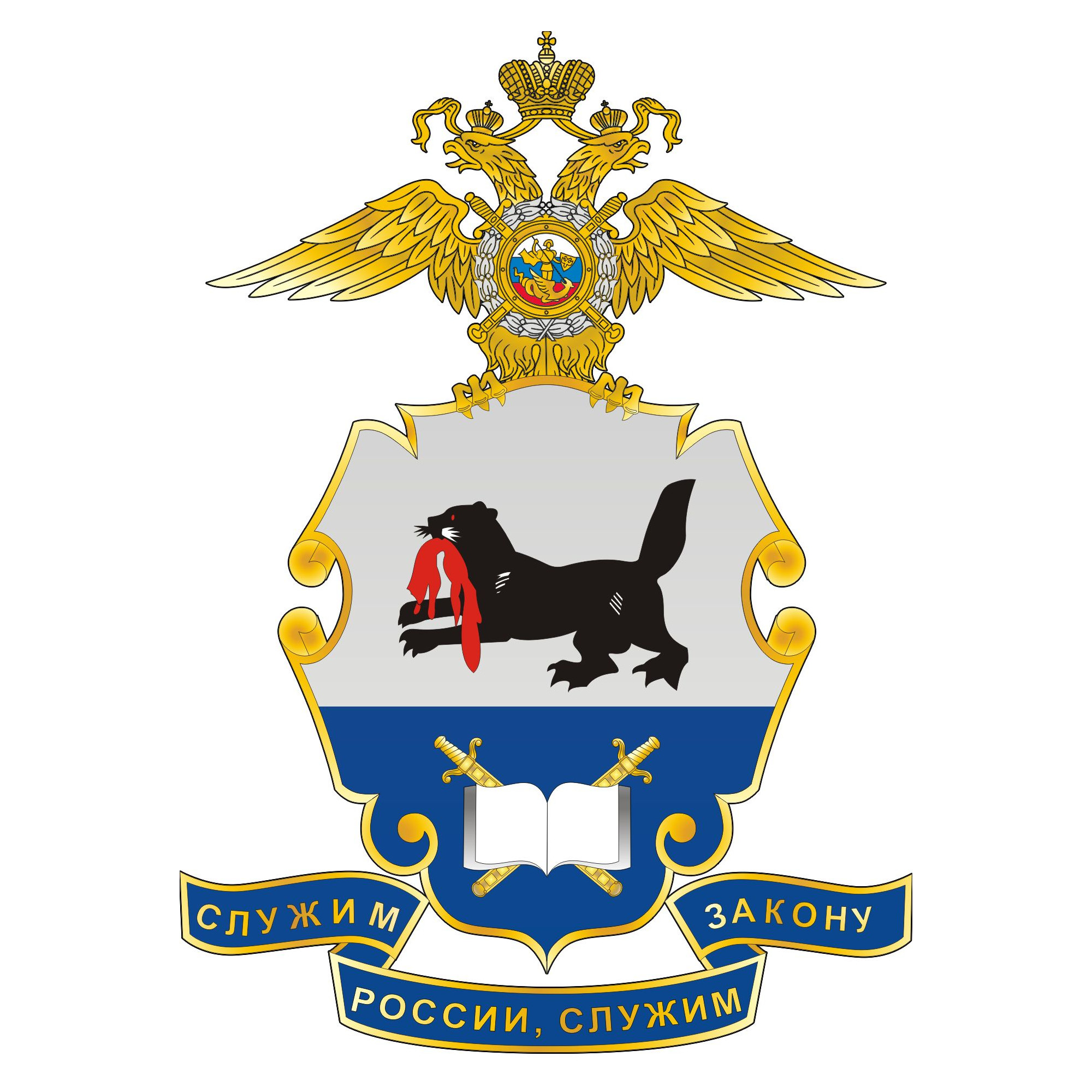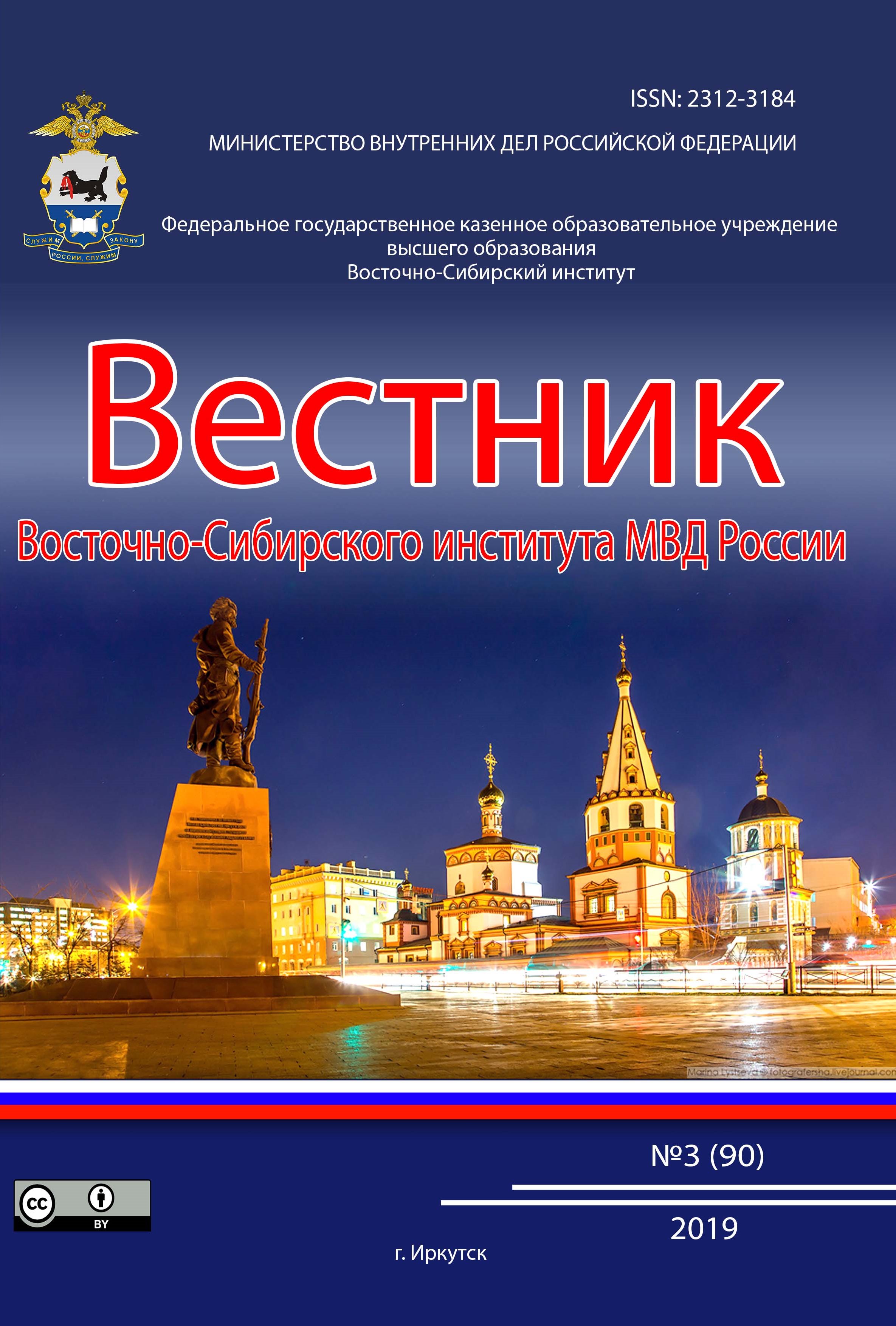East Siberian Institute of the Ministry of Internal Affairs of Russia, Russian Federation (Department of Criminal Procedure, Associate Professor)
employee
Irkutsk, Irkutsk region, Russian Federation
UDC 343.13
CSCSTI 10.79
Russian Classification of Professions by Education 40.00.00
Russian Library and Bibliographic Classification 67411
Russian Trade and Bibliographic Classification 7582
In The process of implementing the right cannot be regulated in such detail as to exclude the need for individual legal regulation. Authorities of criminal procedural legal relations that arose in connection with the commission of a crime make final procedural decisions to achieve the goals of criminal proceedings. Discretion in the implementation of the right is required both in the case of a gap in legal regulation and when using evaluative categories when making final procedural decisions. Traditionally, the discretion of authorities in criminal proceedings when making final procedural decisions is considered as a threat to legality and law and order, a basis for arbitrariness, corruption and abuse. In this regard, it is important not only to determine the role of discretion in the mechanism of criminal procedural regulation, but also the significance of discretion in making final procedural decisions that complete the proceedings on a criminal case.Materials and methods. The study is based on criminal procedural legislation, scientific research in the field of the theory of state and law, criminal proceedings. The methodological basis of the study was the general dialectical method of scientific knowledge, as well as cognitive methods of generalization, description, comparison and analysis.The results of the study allow us to determine the role of discretion as an element of law enforcement in the mechanism of criminal procedural regulation, to identify its grounds and limits when making final procedural decisions in criminal proceedings. Findings and conclusions. The current state of criminal procedural regulation has characteristic features, including the legislator's vector of convergence of various branches of law and the search for a balance of public and private interests in criminal proceedings. With the obvious predominance of the imperative method of legal regulation, the current state of domestic criminal proceedings is characterized by the expansion of dispositive principles. The presence of incentive and evaluative norms in criminal and criminal procedural law is intended to promote humanization and expansion of procedural means of the state's response to a crime, restoration of violated rights and interests and / or their compensation. The increase in the importance of legal awareness of participants in criminal proceedings can be taken into account when developing criteria, limits and legality of discretion, assessing the problems of abuse of rights. Discretion is a necessary and significant element of law enforcement in the mechanism of criminal procedural regulation, at the same time, it is necessary to continue the scientific search for preventive means of negative manifestation of discretion by the authorities of criminal proceedings, competent to make final procedural decisions, increasing the guarantees of the justice of final procedural decisions and the effectiveness of criminal procedural activity, in general.
final procedural decisions, criminal proceedings, discretion, investigator's discretion, judicial discretion, inner conviction, motivation, evaluative categories, dispositiveness, discretionary powers.
1. Gaponova, V. N. On the issue of the purpose of criminal proceedings / V. N. Gaponova, Ya. M. Mazunin, O. A. Yusupova // Forensic science: yesterday, today, tomorrow. – 2021. – No. 4 (20). – Pp. 194-202.
2. Volodina, L. M. Purpose of criminal proceedings and problems of its implementation: monograph. – M .: Yurlitinform, 2018.– 296 p.
3. Kachalova, O. V. Purpose of criminal proceedings through the prism of substantive law // Legal science and law enforcement practice. – 2016. – No. 3 (37). – Pp. 109-112.
4. Sorokin V. V. Fundamental theory of law. – M., Yurlitinform, 2020. – 448 p.
5. Gracheva Yu.V. The Language of the Law and Judicial Discretion// LEX RUSSICA (scientific works of the Moscow State Law Academy)/ – 2010. – No. 6. – Pp. 1315-1329.
6. Judicial Discretion in a Situation of Choice: Possibilities and Limitations. Reflections of Theorists and Practitioners // Judge. – 2019. – No. 7. – Pp. 40-45.
7. Kornakova S.V. Discretion as a Result of the Formation of a Judge's Inner Conviction // Lex Russica (Russian Law).– 2022. – Vol. 75, No. 5 (186). – Pp. 107-116.
8. Vostorgov I.I. Complete Works. Volume IV. Articles on missionary, pedagogical and journalistic issues. 1887-1912. The trial of Jesus Christ from a legal point of view. – M.: Vernost Publishing House, 1916. – Pp. 12-30.
9. Muratova N.G. Criminal Procedure: Problems and Ideas: monograph / edited by D.Sc. in Law, Prof. B.Ya. Gavrilov. – M .: Yurlitinform, 2021. – 464 p.
10. Mashovets A.O. On the Possibility of Forming Court Evidence Using a Polygraph // Bulletin of Tomsk State University. – 2015. – No. 397. – Pp. 212-215.
11. Smolkova I.V. Admission of Guilt by the Accused: Evidentiary and Legal Significance. – M.: Yurlitinform, 2014. – 432 p.
12. Roganov S.A. Legal basis for using a polygraph in law enforcement activities of the Russian Federation: a tutorial / S.A. Roganov. – SPb.: Publishing house of SPbGEU, 2018. – 67 p.
13. Judicial discretion in a situation of choice: possibilities and limitations. Reflections of theorists and practitioners // Judge. – 2019. – No. 7. – Pp. 40-45.
14. Panko, N. K. The problem of justice in criminal proceedings // Bulletin of the Voronezh State University. Series: Law. – 2008. – No. 1 (4). – Pp. 262-269.
15. Groshevoy Yu. M. Professional legal consciousness of a judge and socialist justice. – Kharkov, Publishing house at Kharkov University of the publishing association «Vishcha shkola», 1986. – 184 p.











